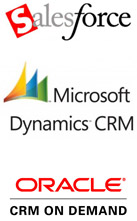![]() The past two days I attended the Pardot User Conference, and also presented a session on Lead Nurturing. Over 100 Pardot customers from all over North America attended this event. And that’s impressive.
The past two days I attended the Pardot User Conference, and also presented a session on Lead Nurturing. Over 100 Pardot customers from all over North America attended this event. And that’s impressive.
Learnings From The Conference
The conference had a nice balance of sessions. The sessions were about lead management, lead nurturing, content marketing, social media and Pardot product sessions. The Pardot team also showed how they are using Pardot within their own organization.
One of the most interesting things Pardot does for their own lead management is to give a 60 second look to each and every lead that is sent to sales. They realize the marketing automation can only go so far, and that a human interpretation of the lead’s profile and email & web activity will uncover additional insights. They add these insights to a notes field, which is typically the first thing a sales rep looks at when they receive a new lead.
Also, the Pardot software integrates with the site search on your website, so if prospects perform a search on your website, the search phrase is added to the activity history. This gives a good indication of a prospect’s intent.
Marketing Automation User Conferences
To organize a user conference, a vendor needs critical mass. You need hundreds of customers, otherwise you won’t get a reasonable number of people to attend the conference. Of the vendors on my list of Marketing Automation vendors, only a handful have enough customers to make this happen.
In May I attended Silverpop’s user conference, and the Marketo and Eloqua user conferences are coming up in October. Just like Pardot, these companies have hundreds of customers, so they are the top of the crop when looking at user adoption of marketing automation systems.
Pardot’s Secret
However, if I ask people which vendors they think are most popular, few are mentioning Pardot. They’re not spending as much on marketing as the other vendors. So what’s their secret? In my opinion, there are three reasons:
- a good product that is easy to use
- simple and reasonable pricing
- friendly and extremely helpful employees
And additionally, I think they focus on an attractive niche in the Marketing Automation market: most of their customers have a marketing team of one to five people, while many of the other top vendors focus on larger clients.
I’m interested to hear your feedback, so please leave a comment. And if you were one of the attendees, let me know how you liked it!


